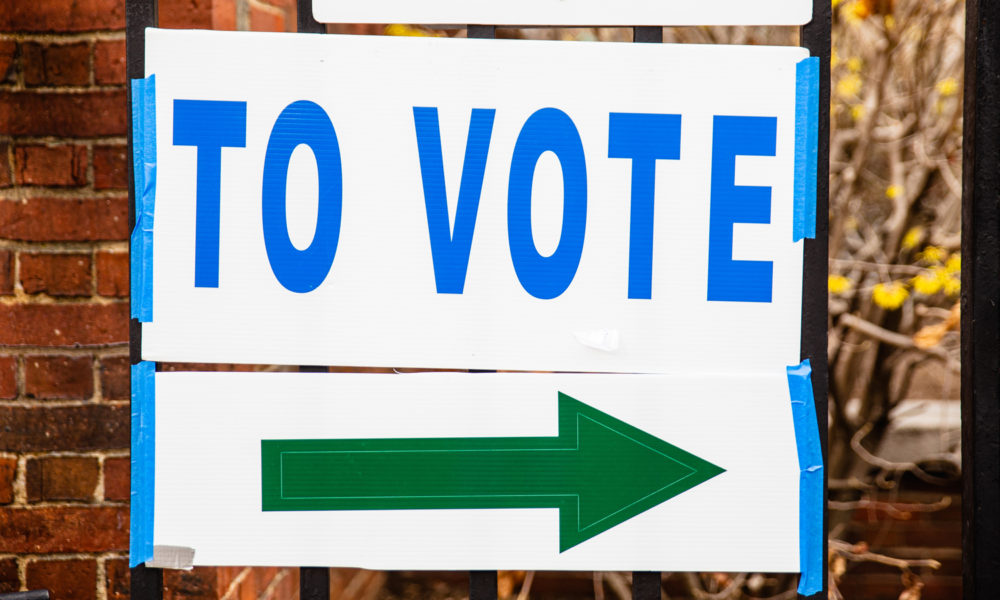March for Science Southern Arizona wanted to create an easy way for voters in our region to determine how science informed the platforms of their candidates. In recent years, voters have been attentive to issues such as climate change and scientific integrity, yet we felt there was a lack of information about how local candidates intended to incorporate science into their policymaking. Our team of volunteers came together to think about how we could solve this problem, and landed on a Science Voter Guide. Our plan was to ask the candidates a series of questions on science-related issues, and publish their responses. This guide would provide a resource to help voters make informed candidate choices and ensure that science-related issues are addressed by local candidates.
Getting started: the 2018 science voter guide
The first Science Voter Guide was developed for the 2018 elections, and included questions on science-related issues facing Southern Arizona ranging from climate change to funding for STEM education. We paid special attention to how the questions were worded and tried to make sure they weren’t “leading” (ie: indicating a right or wrong answer). It was important to us that this guide remained impartial and nonpartisan. Candidates were assured that we would share their responses to our questions verbatim, without any edits, expert analysis, or grading. By doing so, we wanted candidates to see the Science Voter Guide as an unfiltered platform they could use to reach Arizona voters who care about science.
For several furious weeks after our local primary election, our team made calls, sent emails, and “slid into the DMs” of 2018 Southern Arizona candidates. Our motto was “don’t be afraid to be annoying.” We assumed that it would take multiple attempts through multiple people to finally reach our candidates (an assumption that proved to be correct). Eventually, we received responses from seven candidates- not nearly as many as we hoped, but enough that we felt confident publishing the guide.
To publicize the candidates’ responses to our questions, we crafted a page on our website, shared the guide on our email listserv, amplified on social media networks, and even had a feature written about the guide in the Arizona Daily Star. We received praise from several voters, and one committed voter even wrote “I will not be voting for any candidate that did not answer your questions”. The positive feedback overall gave us confidence that the guide was a useful tool and worth expanding upon for future elections.
Expanding our reach in 2020
The 2018 election was our proving ground, and in 2020 we want to improve on the foundation we created. We reviewed what worked and what didn’t work, focusing on how we could encourage more candidates to respond. For one, we looked at the number of questions, and decided that thirteen may have been too large of a request for busy candidates, so in 2020, we narrowed the questions down to five. We also started our outreach to candidates much sooner, with the hope that more candidates would respond if asked in the earlier stages of the election cycle. Additionally, rather than wait until we made contact with all candidates to publish the guide, this year we published the 2020 Science Voter Guide at an earlier stage and will continue to promote the guide after the Arizona primary elections.
Volunteer capacity remains our biggest challenge to the successful completion of this year’s guide. Currently, we have four volunteers responsible for contacting 49 candidates. We learned in 2018 that receiving a response from candidates can be difficult, requiring several attempts through several communication channels. With a limited pool of volunteer hours, this task becomes exponentially more time consuming per person. With this constraint in mind, are trying a new tactic. To make up for limited volunteers, we hope to “crowdsource” our effort to get candidate responses, encouraging voters to take charge contacting their candidates. When we promote the guide, we will do so with the message “help us complete the 2020 Science Voter Guide.” Perhaps a community-wide effort to engage Arizona candidates on science-related issues will be more successful than an effort from a single organization.
Get involved—create your own science voter guides.
The Science Voter Guide has been a challenging, yet rewarding initiative from March for Science Southern Arizona, and we hope that our efforts can inspire other organizations to iterate on our design. If you are interested in joining our team to help complete the 2020 guide, we would love to have you! Please email [email protected] and introduce yourself. We are also happy share the resources we have developed (such as candidate contact sheets, call scripts, or program outlines) with anyone who would like to develop a Science Voter Guide for their voting district. We at March for Science Southern Arizona believe that science has an important role in informing public policy, and it is the responsibility of scientists and science advocates to take on initiatives such as the Science Voter Guide to ensure its role remains intact.

